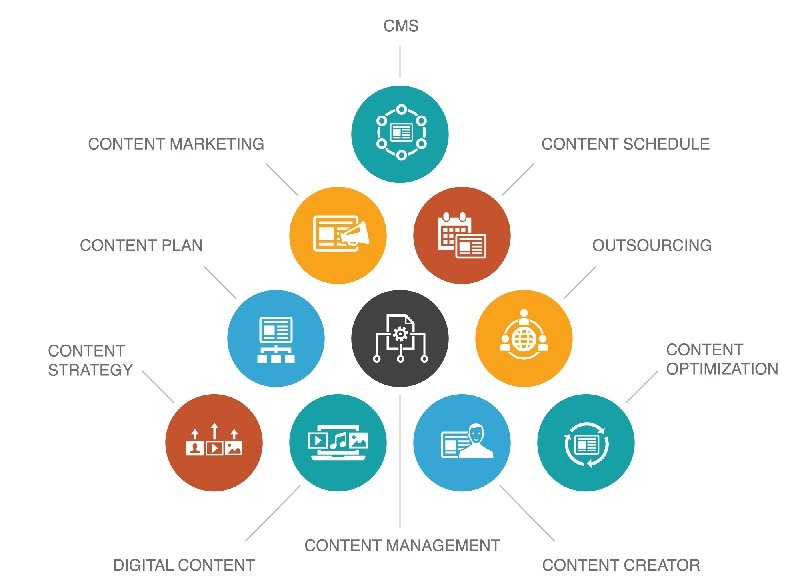What is Content Management | How to Choose the Right System
If you run a website, you definitely understand that creating and uploading content is a tedious task. In other words, managing a website’s content can be difficult at times. For those who have faced this, content management can be an ideal solution. To put it another way, content management involves organizing and consolidating content, including texts, multimedia clips, and graphics, efficiently and storing them in a content management system. Content managers can reuse and repurpose the organized content in multiple publications, mediums, and channels.
Why use Content Management Systems?
Content management systems (CMS) allow content managers to manage web content, as it allows content contributors to collaborate in creating, editing, and publishing good content. In this case, content managers should consider using content management software for its collaborative nature. Since all interfaces are browser-based, several contributors can access CMS on the go.

Ease of use is another reason why content managers should consider CMS. The non-technical nature of these platforms makes it easy for everyone to create and manage site content. It also makes it easy for web content managers to check their SEO, website traffic, and content rating of their articles. This reduces over-reliance on programming experts to effect changes to websites.
How Does It Work?
Content management systems work in the following ways;
- Controls content – CMS enables content managers to control their site content with ease. It keeps track of uploaded content, making it easy to identify its location, those who can access it, its condition, and how it interacts with other content. For example, a blog post.
- Allows content reuse – using your content in multiple channels is a good way of increasing its value. For instance, with a CMS, your new article will not only appear on a separate web page but also feature a teaser on the category page and sidebars.
- Content automation and aggregation – assembling your content in one location make it easy to query and moderate. Properly structured content also makes it easy to display in varying formats, publish in various locations, and re-structure to suit your site visitor’s needs. For instance, your site visitors can consume different variations of content, such as PDF and eBooks, automatically create lists, create multiple language translations, and more.
How to Choose a Content Management System
With several content management systems available, finding the best can be daunting. Consider the following factors to find the right tool.
Security
Ensuring that your website is free from cyberattacks is very important. With cloud-based CMS increasingly becoming a common target for cybercriminals, ensure that your CMS of choice features robust data protection features. This helps mitigate potential security issues, such as unauthorized access, malicious codes, and data integrity violations.
Multilingual support
A good CMS should support multiple languages, which enables content managers to run localized marketing campaigns that suit the target market. In other words, run a campaign in the language it’s intended for.
Ease of use
User-friendliness is another essential consideration. The interface should be intuitive and allow employees to use various components, including photo editing and other marketing materials in the system. In short, user guides are a plus.
Analytics
Google Analytics results are important when running a content marketing campaign. Therefore, the system should have an integrated analytics engine that content creators, marketing experts, and managers can use to predict trends and new content opportunities.
What Are Some Popular CMS?
Bearing the factors above in mind, the following are the best CMS platforms to consider;
WordPress
WordPress is probably the best and most widely used content management system, powering more than 35% of websites. It is an open-source platform that can be downloaded for free. However, you will have to purchase a domain name and hosting to run your site and make it available online. WordPress is user-friendly, and content managers without much knowledge of web design can easily create websites, blogs, and online stores.
Joomla
Joomla is the second most popular CMS platform, with a market share of approximately 5.2%. Like WordPress, it is free to use and features various templates and extensions. Generally speaking, it is a good choice for content managers looking for CMS that can handle complicated and bespoke functionalities.
AC Stuff
AC Stuff is an excellent content management app widely known for its use by Assetto Corsa. Besides the standard features, AC settings feature extensive functionality, advanced ability speed, and usability. New features of this platform include extra commands, great fonts, missing content downloads, and various effects. Since it suits gaming platforms, players can explore custom showrooms from ac showroom, career mode and online mode, obsolete car mods, multiple car skins, and more from this custom launcher.
Drupal
Drupal is another free and open-source CMS that comes in handy in building websites. It offers great themes that help web designers develop amazing websites. However, content installation and modification is quite challenging compared to WordPress.
Pros and Cons of CMS
Pros of CMS
- Simple and easy-to-use interface
- Cheap overall cost
- Short content development time
- Multiple CMS options to choose from
- Enables unlimited collaboration

Cons of CMS
- Full customization is not possible
- Can break if configured incorrectly
- Requires regular updates
The Bottom Line
Content management systems enable website owners to create websites without learning to program. Without these systems, you will either have to learn how to code and programming languages, such as HTML and CSS, to create your website. Alternatively, you can hire web developers and design teams to create your site. Fortunately, as a content manager, you can avoid all the tedious work by using these CMS systems or tools.



